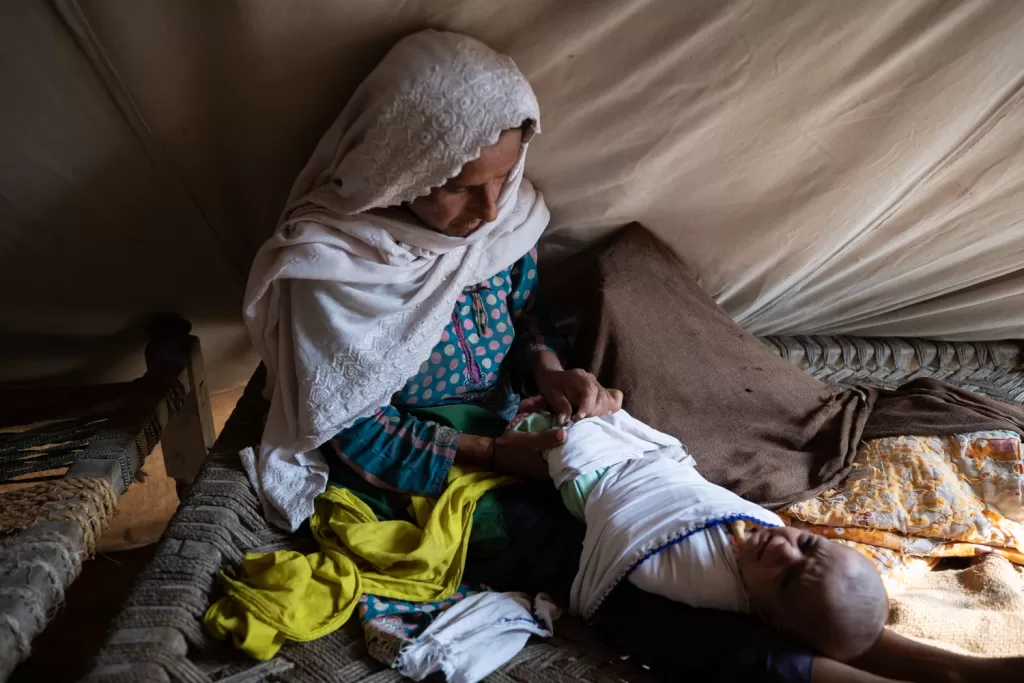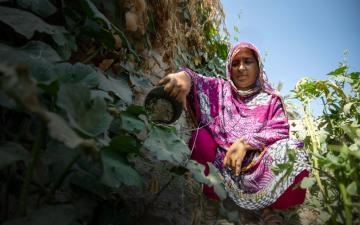
No home, no hospital, but not without help: Supporting mothers and babies affected by the Pakistan floods
The extreme flooding that hit Pakistan left hundreds of thousands of women in need of maternity services. DEC charities are helping by providing food, shelter and mobile health clinics.
The extreme flooding that hit Pakistan left hundreds of thousands of women in need of maternity services. DEC charities are helping by providing food, shelter and mobile health clinics.

Mothers with their new babies wait to be seen at a mobile clinic supported by DEC charity CAFOD in Sindh.

Salma received postnatal support through a mobile health clinic run by DEC charity CAFOD.
Salma was one of them. “My first child, a son, was born during the heavy rains. I was unable to travel to the city to give birth," she says. Luckily, she found a local midwife who delivered the baby, even though they had no way of paying her.
Salma is one of the many women who received postnatal support through a mobile health clinic run by DEC charity CAFOD. The clinics are vans set up with medical equipment, stocked with essential medicines, and run by a team of medics who travel every day to hard-to-reach areas, providing basic healthcare to communities who would otherwise struggle to access support.
CAFOD’s mobile clinics aimed to reach 20,000 people in the first three months after the floods, while other DEC charities are running similar projects to meet the health needs of vulnerable people.


Noor gave birth to her baby soon after her house collapsed in the floods.

Jhaini and her baby are seen at a mobile clinic run by CAFOD.

Dr Rabel treats a child at a camp for displaced people, through a mobile clinic supported by Concern Worldwide.


